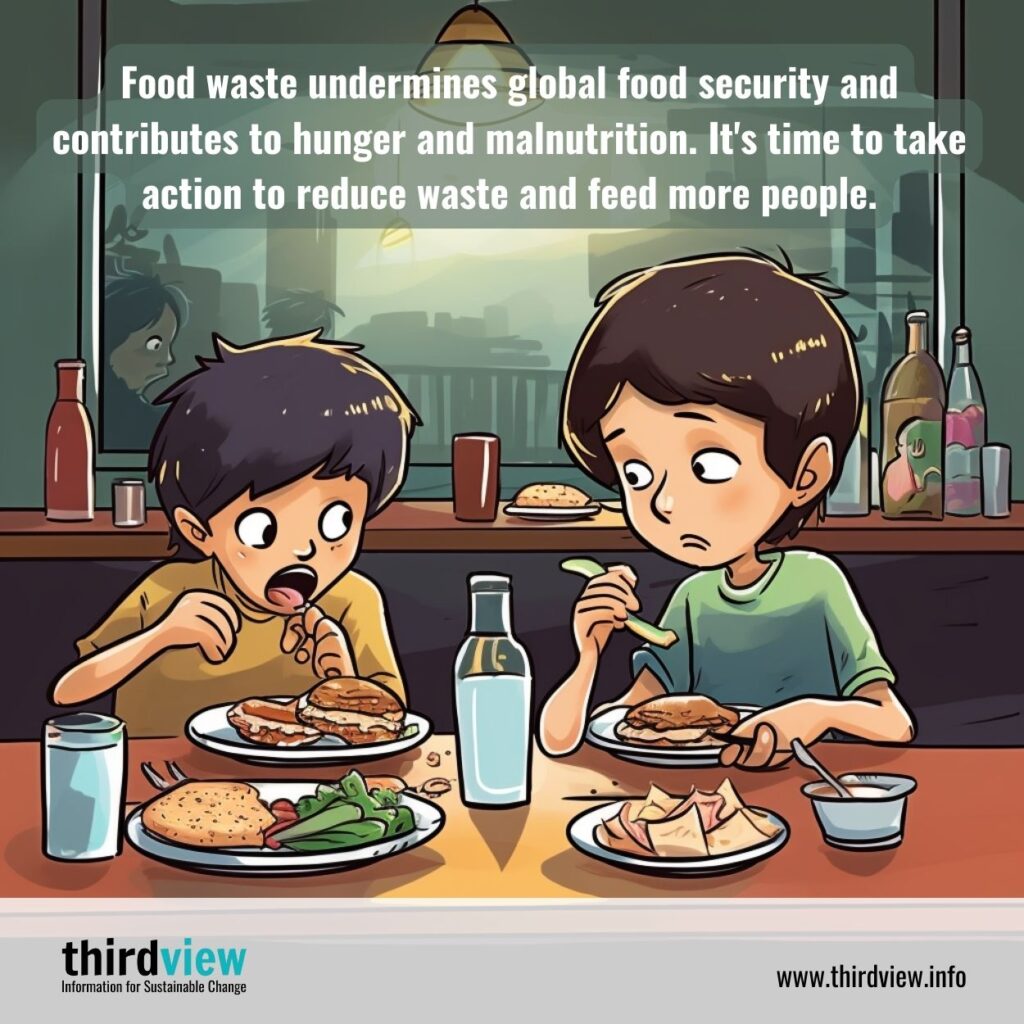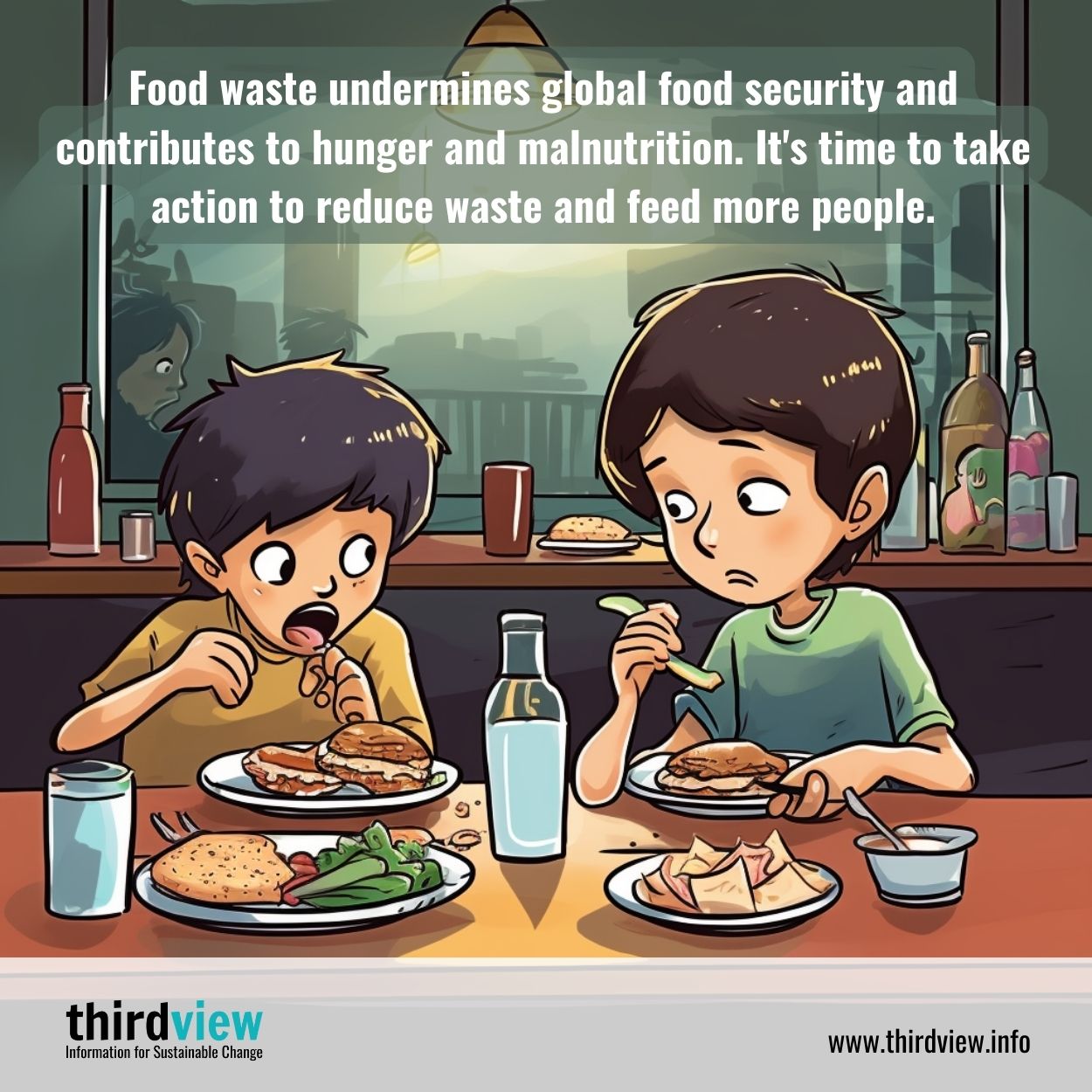Food insecurity is a pressing issue that affects millions of people worldwide. Despite this, there is a significant amount of food that is wasted annually. In fact, around one-third of all food produced globally is lost or wasted every year, totalling up to 1.3 billion tons of food annually. This staggering statistic highlights the urgent need to address the impact of food waste on global food security. In this blog post, we will discuss the impact of food waste on global food security and the steps that can be taken to address this issue.
The impact of food waste on global food security is significant. According to a report by the Food and Agriculture Organization (FAO), if just one-quarter of the food that is lost or wasted globally could be saved, it would be enough to feed 870 million people. This statistic is particularly significant when we acknowledge that around 800 million people worldwide suffer from hunger and malnutrition.
Not only does food waste impact food security, but it also has environmental and economic consequences. When food is wasted, it leads to the release of greenhouse gases, which contribute to climate change. Furthermore, valuable resources such as land, water, and energy are being used to produce food that ends up being thrown away, resulting in significant economic losses.
Food waste occurs at every level of the food supply chain, from production to consumption. In low-income countries, food waste occurs mainly during the production and distribution stages, while in high-income countries, it is more prevalent at the consumption stage. Reducing food waste requires a multifaceted approach that targets all stages of the supply chain.
One way to address food waste is by improving supply chain efficiency. This can be achieved by implementing innovative technologies such as data analytics and automation to streamline the production and distribution of food. Additionally, education and awareness-raising campaigns can be used to promote responsible food consumption. This includes initiatives that focus on reducing food waste at the household level, such as meal planning and proper food storage.
Finally, policymakers have a crucial role to play in reducing food waste and promoting food security. Governments can introduce legislation and policies that incentivize food businesses to reduce waste, such as taxes on landfill, and provide support for food recovery and donation programs.
In conclusion, addressing the impact of food waste on global food security requires a comprehensive approach that targets all stages of the food supply chain. Reducing food waste is not only essential to feed the world’s population, but it also has a significant impact on the environment and the economy. By improving supply chain efficiency, promoting responsible food consumption, and introducing supportive policies and legislation, we can move towards a more sustainable and secure food system. Every individual has a role to play in reducing food waste, and together, we can make a difference.


